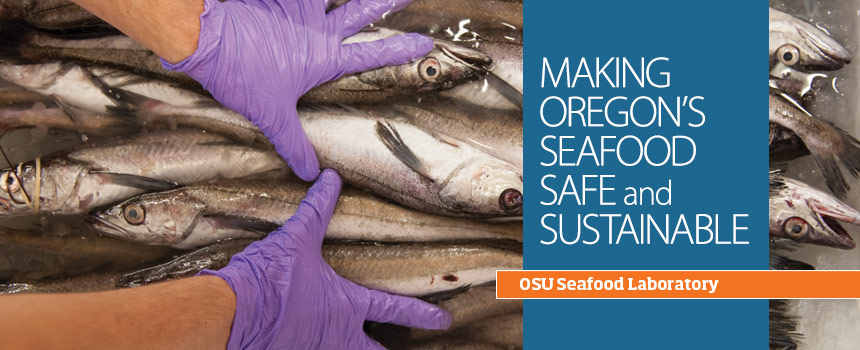Seafood-based delicacies from fish that no one wanted

Surimi is much more than imitation crab. It’s a seafood product, made from mild-tasting white fish such as Pacific whiting, that can be crafted into shapes and flavors to fit a surprising array of cuisines. In the U.S., surimi is what’s inside the sushi called California roll. The Japanese invented it, the world loves it, and it saved the jobs of a fleet of Oregon fishermen.
In the 1970s, when the Pacific salmon industry went belly-up, West Coast fishermen were quick to blame foreign fleets fishing for Pacific whiting just three miles offshore. The U.S. Senate responded by claiming sovereign waters to 200 miles and banishing foreign factory ships.
[caption caption="OSU food scientist Jae Park examines the latest surimi-based seafood innovation. (Photo by Lynn Ketchum.)"] [/caption]
[/caption]
“Oregon fishermen are resourceful,” recounts Michael Morrissey, director of OSU’s Food Innovation Center. They saw an opportunity to put their boats back to work by providing fish for the foreign factory ships. Soon, shore-based fish-processing plants replaced the offshore foreign factories, and processing plants that had been closed for a decade reopened as manufacturers of surimi.
Developing a shore-based whiting industry for Oregon was the first project for the brand-new Coastal Oregon Marine Experiment Station when it opened in 1988. Standardized processing techniques were crucial to ensure safety for consumers and the environment. For the past 20 years, OSU food scientist Jae Park has advanced surimi research through the international Surimi School that he began in 1993; the Surimi Industry Forum; and his comprehensive textbook, Surimi and Surimi Seafood. His industry outreach has expanded to Europe, Japan, and Asia.
Park also shares two U.S. patents for the development of new seafood-heating techniques that increase energy efficiency, reduce cooking space, and reduce disease outbreak. In 2011, Park won the Macy Food Science and Technology Award for his outstanding scholastic achievements in surimi research.
